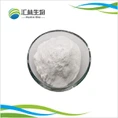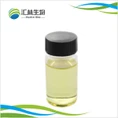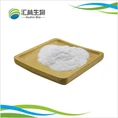Difference Between Carbomer and Carbopol
The key difference between Carbomer and Carbopol is that Carbomer is a generic term for a class of synthetic polymers derived from cross-linked polyacrylic acid. These polymers are categorized by molecular weight, cross-linking density, and viscosity properties, with common grades including 934, 940, and 980.
Whereas Carbopol is a branded subset of carbomers developed by Lubrizol Corporation. Specific Carbopol grades (e.g., 940, 971P) are optimized for pharmaceutical and cosmetic formulations, ensuring compliance with industry standards.

Core Shared Essence of Carbomer and Carbopol
Carbomer and Carbopol are fundamentally cross-linked polyacrylic acid polymers designed to act as rheology modifiers. Both exhibit pH-dependent gelation, forming viscous or gel-like structures when neutralized (typically pH 5–10), and serve as stabilizers, thickeners, or emulsifiers in pharmaceuticals, cosmetics, and industrial products. Their chemical backbone consists of acrylic acid monomers cross-linked with agents like allyl sucrose or pentaerythritol allyl ether, enabling water absorption, swelling, and network formation. Despite differences in branding (Carbopol as Lubrizol's proprietary line) and formulation optimizations, they share identical polymeric chemistry and functional mechanisms, relying on carboxyl group interactions for performance in diverse formulations.

Applications: Carbomer vs. Carbopol
Carbopol, as a branded carbomer variant, is engineered for high-performance pharmaceutical and cosmetic formulations. Its optimized cross-linking agents (e.g., polyalkyl sucrose) provide superior clarity, shear resistance, and pH tolerance, making it ideal for ophthalmic gels, topical drug delivery systems, and premium skincare products (e.g., serums, sunscreens). Grades like Carbopol 980 and 971P are specifically designed for ionic-sensitive formulations (e.g., electrolyte-containing lotions or surfactant-rich cleansers), ensuring stable viscosity and texture control in dermatological and mucosal applications.
Generic carbomers serve as versatile thickeners and stabilizers in cost-sensitive or non-specialized products. They are widely used in basic skincare (e.g., moisturizers, hand sanitizers), household cleaners, and industrial gels where extreme purity or regulatory compliance is less critical. While effective for simple emulsions or suspensions, their performance may degrade in high-electrolyte or surfactant-heavy systems due to less refined cross-linking compared to Carbopol.





